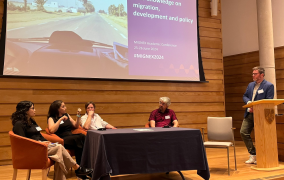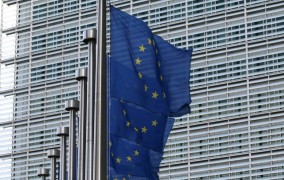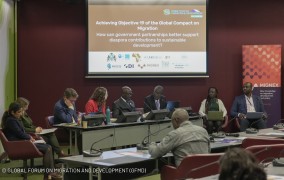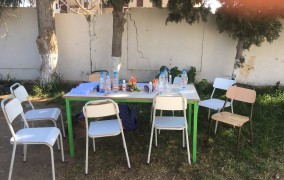News
Troubled, but hopeful geographies: reflections from the RGS annual conference
From the politics and governance of mobility and immobility to the relationship between migration and climate change as central to development, Marta Bivand Erdal shares reflections from this year’s RGS conference.
In August myself and Jørgen Carling were among some 1800 geographers who attended this year’s Royal Geographical Society and Institute of British Geographer’s annual conference, the theme of which was ‘Geographies of trouble / Geographies of hope’. Researchers from across the globe gathered to share research findings and exchange ideas, with lots of discussions that felt highly relevant to MIGNEX’s research agenda.
Rethinking assumptions
MIGNEX seeks to refine our understandings of determinants of migration, working to unpick underlying assumptions. Drawing on interviews conducted in Brazil, among individuals not planning to emigrate, Dan Robins, reflected on the ways in which immobility – staying put – can be a choice that is made, and re-made, in similar ways to the choice to leave. The choice to leave – or indeed to stay, often defies the commonplace binary assumption of migration as either forced or voluntary, which in turn leads to a residual approach to the terms ‘migrant’ and ‘refugee’. Instead, more open-ended approaches to mobilities of different kinds and directions, sensitize us to the ways in which the philosophical assumptions about “free choice” and “voluntariness” which somehow underpin our explanations of migration dynamics, often fail to account sufficiently for the degree to which societies are individually or collectively oriented.
Migration as adaptation
Policy coherence, and the roles which policies play in shaping how migration impacts development and vice versa are central to MIGNEX research. With climate change an ever more urgent pressing issue for policymakers around the globe, migration as an adaptation strategy in the face of climate change was a key focus for the conference. Migration as an adaptation strategy is not new. Yet we know a limited amount about how it is considered by different actors, implemented and to which effects.
Ricardo Safra de Campos shared insights on the roles and reasons for government action or inaction, in cases where planned relocation of climate-change affected communities is a question. Key reasons for government action or inaction include political interest or lack thereof, stakeholders in high-power positions or not and the political costs of action or inaction. It is worth considering how dynamics in governance of internal and international mobility, may share key features – despite the salience of nation-state borders in discussions of international migration.
Troubled waters
Reflecting as much the ‘trouble’ as ‘hope’ of the conference theme, plenaries and paper sessions engaged with the challenge of equality in knowledge exchange and knowledge production. Given asymmetries in institutional resources across the world, the issue of access to visas permitting participation in conferences such as this one was acknowledged as an ongoing problem.
MIGNEX research puts the challenge of tackling inequalities in knowledge exchange production at the core of our approach. Research ethics and integrity are ideals that should inspire reflection on how we carry out research and constructively communicate insights to audiences with diverging views on migration and its links with development.



